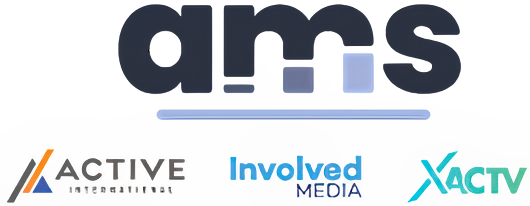FCC Shutting Off Analog TV Early in Wilmington, N.C.—Is it a Valid Test?
By now you’ve probably heard about the FCC plan to complete the DTV transition early in Wilmington, N.C. All commercial full power analog stations, WWAY (ABC), WSFX-TV (FOX), and WECT (NBC) will cease analog broadcasting on Sept. 8, 2008.
The FCC news release indicated low-power stations WILM-LP (CBS) and W51CW (Trinity) would also broadcast only digital signals. While it took a little searching, using the FCC’s TVQuery Web page, I found WILM has a CP for a 7.5 kW ERP DTV on Channel 40. W51CW has a CP for a maximum power 15 kW DTV on Channel 51, the same channel it is using for analog. Given that WILM-LP has only 7.5 W on Channel 10, I suspect viewers are having a lot better luck with their DTV signal. WILM has its HDTV program guide posted on its Web site, which proudly proclaims “First in Flight, First in Digital”
The public broadcasting station, WUNJ, will not be turning off its analog signal. The reason—September is near the peak of hurricane season in North Carolina. This makes sense—there are very few portable TV sets available able to receive DTV and the one I tried didn’t work that well. USB tuners work very well with battery powered laptops, but even with the wide assortment of inexpensive USB tuners available today it is unlikely a significant number of viewers have laptops with one of them installed.
I used www.antennaweb.org to see what other TV stations may be available in Wilmington, NC using the UNC campus as the address. It appears that the only other analog stations that might be receivable are WCTI, Channel 12, the ABC affiliate in New Bern, N.C. and WUNM, the North Carolina Public Broadcasting station in Chapel Hill, N.C. According to AntennaWeb, WPXU in Jacksonville, N.C., is available, but only on its digital Channel 34.
Because all the full power stations and WILM-LP will already be broadcasting a digital signal, they won’t provide any insight on potential problems with digital converter boxes that lack the ability to receive or pass analog TV signals. Depending on when the Trinity station W51CW decides to flash-cut to digital, it may provide some insight on how serious a problem this is, especially with the extensive DTV education effort in Wilmington prior to the September analog turn-off.
Over all, I think this is a good idea. While research tells us how many households rely on over-the-air TV reception, the number of extra TV sets in households with cable or satellite that are being used for over-the-air reception isn’t as clear. Another potential problem involves master antenna systems in hotels, hospitals and apartment houses. If they are processing analog over-the-air TV signals and putting them on different channels for display on analog TV sets or converter boxes, broadcast TV will disappear from these systems when analog is shut off. Wilmington’s early transition should give us an idea if these systems will be a major problem. The FCC news release didn’t indicate the market would turn analog back on if there was a major problem, but I think most readers who have worked with transmitters, especially tube transmitters, know that if they are turned off for an extended period of time they many not turn back on without some problems!
Get the TV Tech Newsletter
The professional video industry's #1 source for news, trends and product and tech information. Sign up below.

Doug Lung is one of America's foremost authorities on broadcast RF technology. As vice president of Broadcast Technology for NBCUniversal Local, H. Douglas Lung leads NBC and Telemundo-owned stations’ RF and transmission affairs, including microwave, radars, satellite uplinks, and FCC technical filings. Beginning his career in 1976 at KSCI in Los Angeles, Lung has nearly 50 years of experience in broadcast television engineering. Beginning in 1985, he led the engineering department for what was to become the Telemundo network and station group, assisting in the design, construction and installation of the company’s broadcast and cable facilities. Other projects include work on the launch of Hawaii’s first UHF TV station, the rollout and testing of the ATSC mobile-handheld standard, and software development related to the incentive auction TV spectrum repack. A longtime columnist for TV Technology, Doug is also a regular contributor to IEEE Broadcast Technology. He is the recipient of the 2023 NAB Television Engineering Award. He also received a Tech Leadership Award from TV Tech publisher Future plc in 2021 and is a member of the IEEE Broadcast Technology Society and the Society of Broadcast Engineers.
